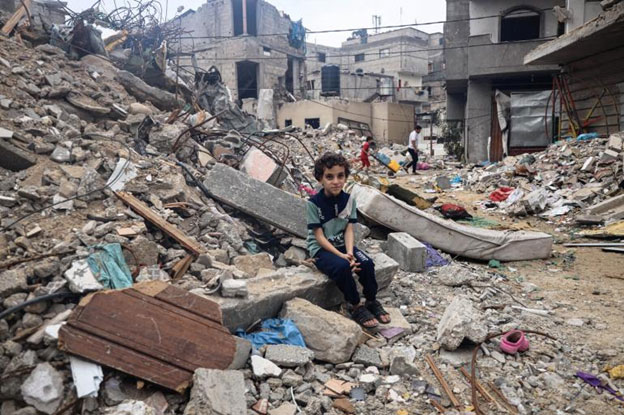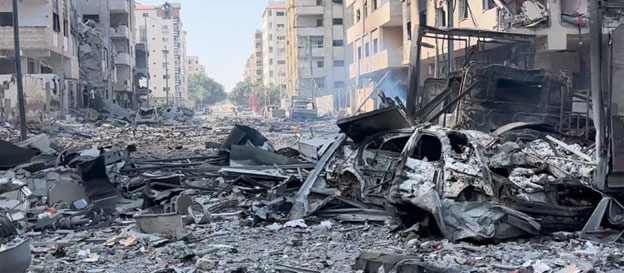Civilian Deaths in Gaza a Stain on Israel and its Allies

OSLO, Norway, Dec 06 (IPS) - The pulverising of Gaza now ranks amongst the worst assaults on any civilian population in our time and age. Each day we see more dead children and new depths of suffering for innocent people enduring this hell.
Across the Gaza Strip, almost the entire population – 1.9 million people – have been displaced. Nearly two in three homes are now damaged or destroyed. Amid relentless air, land and sea attacks, thousands of families are forced to relocate from one perilous zone to another.
Today, more than 750,000 people are crowded into just 133 shelters. Tens of thousands live on the streets of southern Gaza, where, under bombardment, they are forced to improvise basic shelters from whatever they can get hold of.
The winter rains have arrived and so have infectious diseases, just as public health services have been utterly paralysed. Many of my own NRC staff members now live on the streets. One of them does so with her two-month-old baby.

Our colleagues in Gaza ask themselves a simple question: how is it that these atrocities are beamed across the world for all to witness, and yet so little is done to stop them?
Countries supporting Israel with arms must understand that these civilian deaths will be a permanent stain on their reputation. They must demand an immediate ceasefire in Israel and Gaza. Only a cessation of hostilities will allow us to ensure effective relief to the two million who now require it.
Severe restrictions on aid access have aggravated the situation, leading to starvation among Gaza's population, intensifying an already dire humanitarian crisis. We have been forced to halt nearly all of our aid operations due to the bombardment, the chaos, and the panic.
There must be accountability for those responsible for the killings, the torture, and the atrocities committed in Israel on October 7th.
The killing of thousands of innocent children and women, the siege on an entire civilian population, and the trapping of bombarded civilians behind closed borders in Gaza are also crimes under international law.
There must also be accountability for this, from political and military leaders as well as those who provided arms and support. This military campaign can in no way be described as ‘self-defense.’
We again demand that all hostages are immediately and unconditionally released. Neither the lives of innocent children, women or men, nor the ability of aid workers to access the vulnerable, should be used as bargaining chips.
The situation in Gaza is a total failure of our shared humanity. The killing must stop.
Jan Egeland is a Norwegian diplomat political scientist, humanitarian leader and former Labour Party politician who has been Secretary General of the Norwegian Refugee Council since 2013. He served as State Secretary in the Norwegian Ministry of Foreign Affairs from 1990 to 1997 and as United Nations Undersecretary-General for Humanitarian Affairs and Emergency Relief Coordinator from 2003 to 2006.
IPS UN Bureau
Follow @IPSNewsUNBureau
Follow IPS News UN Bureau on Instagram
© Inter Press Service (2023) — All Rights Reserved. Original source: Inter Press Service

